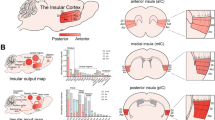Abstract
Health and eating habits to change is not an act of will. Therefore neuropedagogics focus on the emotional and intuitional control systems of the human brain. Incoming sensory stimuli are evaluated by the limbic system and determine which behavior, feelings and thoughts are triggered. In case of fight and flight responses nutrition is often used to compensate self-worth violations. These response mechanisms are established in earlier phases of life and are later unconsciously working. The ability to use other internal decision mechanisms in accordance with the needs of the body, soul and mind can be influenced. A training of selected language patterns substitutes self-worth diminishing influences by self-worth strengthening ones. When liberated from internal and external dependencies men can decide freely which health and nutritional habits they realize in accordance with the needs of the body and the circumstances of their life.
Zusammenfassung
Die Neuropädagogik fokussiert auf emotionale Steuerungsparameter für eine Veränderung menschlichen Verhaltens. Gefühle, Sinneserfahrungen und Außenreize wie Sprachmuster werden gemeinsam im Gehirn zu einem typischen Erregungsmuster vernetzt. Diese Erregungsmuster können durch eine Veränderung der emotionalen Bewertung von Lebenserfahrungen verändert werden. Besonders gut gelingt dies durch die unbewusste Gefühlsaktivierung mittels ausgewählter Sprachmusterkoppelungen. Ernährungsverhalten wird dabei in seiner Kompensationsfunktion für schmerzlich gemachte Lebenserfahrungen gesehen. Die Neuropädagogik vermag mit einem neurowissenschaftlich basierten Kommunikationstraining, die biophysiologischen Voraussetzungen für eine mit Selbstwertstärkung verbundene Veränderung von Ernährungs- und Gesundheitsverhalten zu schaffen.


Similar content being viewed by others
Notes
Karl Popper (1902–1994) laid down the modern rules of scientific research and scientific methods with the introduced theory of the recognition of scientific knowledge. He describes the progress of science as the result of trial and error, of formulating hypotheses, theories and assumptions which are to be disproved, if possible.
References
Bandura A (1994) Self-efficacy: the exercise of control. Freeman, New York
Bandura A (2005) The primacy of self-regulation in health promotion. In: Applied Psychology, Bd. 54, 20056, S. 245–254. Blackwell Publishing, Oxford
Bauer J (2010) Das Gedächtnis des Körpers. Wie Beziehungen und Lebensstile unsere Gene steuern, Eichborn
Damasio AR (1999) The feeling of what happens: body and emotion in the making of consciousness. Harcourt Brace, New York
Goleman D (1996) Emotional intelligence: why it can matter more than IQ. Bloomsbury, London
Hüther G (2006a) The compassionate brain. How empathy creates intelligence. Translated by Michael H. Kohn. Trumpeter, Boston
Hüther G (2006b) Wie Embodiment neurobiologisch erklärt werden kann. In: Storch M, Cantieni B, Hüther G, Tschacher W (eds) Embodiment. Die Wechselwirkungen von Körper und Psyche verstehen und nutzen, Hans Huber, Bern. S, pp 73–97
Popper KR (1960) The Logic of Scientific Discovery. London: Hutchinson
Pribham K (1969) Introduction. In: Pribahm K (ed) On the biology of learning. Harcourt Brace & World, New York
Roth G (2007) Fühlen, Denken, Handeln. Wie das Gehirn unser Verhalten steuert. Suhrkamp, Frankfurt/M
Spitzer M (2007) Learning: the Human Brain and the School for Life. Elsevier Science and Technology, London
Author information
Authors and Affiliations
Corresponding author
Additional information
Jens Fleischhut is a scientist at the Free University of Berlin in the field of educational sciences. Since 2005 he was the head of the research project “Emotional Neuroscience: Unconscious Activation of Emotions by Selected Language Patterns” which came to an end in September 2009. The results of the research project are now available as a “Neuroscientifically Based Communication Training for Personal Development and Health Improvement”.
Rights and permissions
About this article
Cite this article
Fleischhut, J. How to influence emotions by means of modern neurobiology and psycholinguistics in order to change eating habits and for a better health. J. Verbr. Lebensm. 6, 87–94 (2011). https://doi.org/10.1007/s00003-010-0628-5
Received:
Accepted:
Published:
Issue Date:
DOI: https://doi.org/10.1007/s00003-010-0628-5




